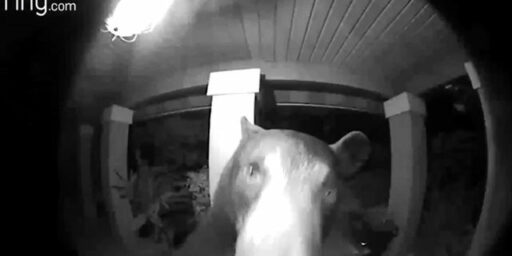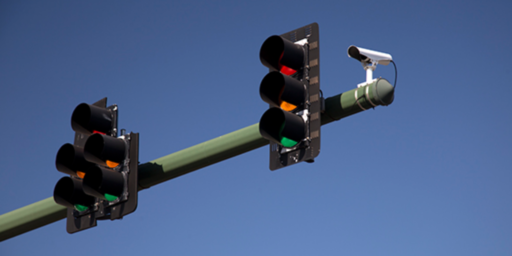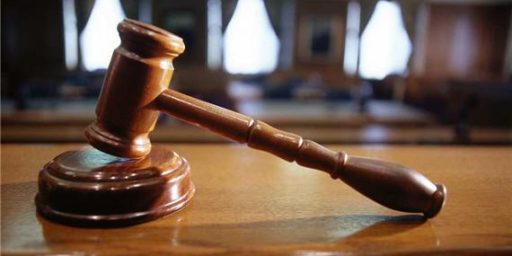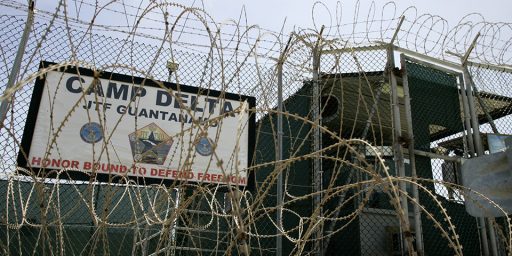Blogging the Libby Trial: Judge’s Rules of Order
MBA president Robert Cox has been attending the voir dire and getting the lay of the land for the blogging of the Scooter Libby trial. Since I’m close to local and the start date of the actual proceedings is flexible, I’ll be first in the chute, probably starting Monday.
There has been some confusion on one point: Where we’ll be sitting. Bob was given a choice in the matter but, given the rules set forth by Judge Walton, he chose to have us blog the trial from the Media Center rather than the courtroom itself. In addition to losing the ability to come and go as we please, including losing our press pass if we did not arrive 15 minutes early, the biggest drawback to blogging the trial from the main courtroom is the ban on laptop computers. It’s rather hard to live blog without access to the blogging interface!
While it’s disappointing not be sitting in the room and getting a first-hand feel for the reactions of the jury and other attendees, Bob reports that, “The room set up as a media center is ideal for a blogger. There is a widescreen television displaying four feeds from the video camera – the judge, the witness box, a crossshot of both and the lawyer’s desks. The Wifi worked perfectly and I was online within a minute of getting into the room.”
According to Judge Walton’s order:
The First Floor Media Center will be the second remote location for video and audio transmission of proceedings from Courtroom 16. Cameras will be fixed on the witness, counsel, and the court, with no focus on the jury. In addition, exhibits admitted into evidence and published to the jury will be displayed in this room.
A. No cameras, cellular telephones, or tape recording devices may be used in the off-site courtroom. Laptop computers will be permitted for note taking purposes, live written reporting of the proceedings, or blogging only.
B. Photographic, and video and audio recording or transmission of court proceedings are strictly prohibited. There shall be no broadcasting from the First Floor Media Center. Any violation of this prohibition may result
in the banning of all laptops from the remote facility or the closing of the facility and the imposition of contempt sanctions against the violator individually and, if attending in the capacity of an employee or agent, against the employer or principal.C. Only credentialed members of the media will be permitted to enter this room.
It’s noteworthy that, as is the custom in federal trials, no audio or video records of any kind are permitted [UPDATE: It’s more than a “custom;” they’re barred by black letter law in federal criminal trials. There have been various failed efforts to change that.]. With the exception of sketch artists, no depictions of the trial other than the verbal and written media reports will be forthcoming. Even text transcripts of the trial will not be released until after all testimony is in.






I won’t mention the ability to record audio from a laptop computer. That would make things just too messy, especially considering that such recording is illegal.
Boyd: Yeah, there’s only so much they can enforce in the media room. Now, if someone recorded the material and then posted it on their website or otherwise broadcast it, that person or organization could be cited for contempt, have their credentials revoked, and so forth.